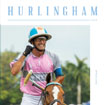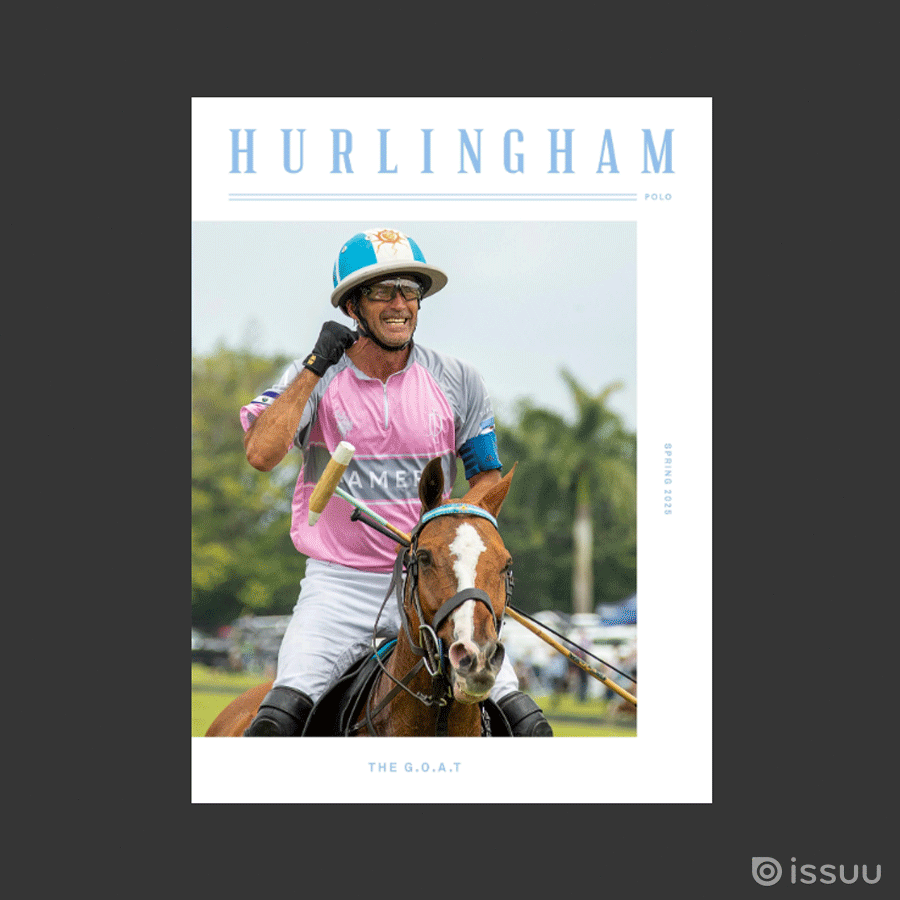MUSEUM OF POLO ANNOUNCES 2012 HALL OF FAME INDUCTEES
The 23rd Annual Hall of Fame Dinner and Awards Gala is set to take place on Friday, February 17th at the Museum of Polo and Hall of Fame, so make sure to mark it on your calendars and make your reservations early. It is going to be another fantastic evening and we hope you will join us to honor the latest inductees who will join the many distinguished individuals in the polo Hall of Fame. The Board of Directors of the Museum of Polo and Hall of Fame is proud to announce the pending induction of:
Carlos Gracida– Living Hall of Fame Award
James P. “Jimmy” Mills– Posthumous Hall of Fame Award
George Alexander– Living Iglehart Award
Alfred G. “Herbie” Pennell– Posthumous Iglehart Award
Chips Royal, owned by Bob Beveridge – Horses to Remember
Brown Fern, owned by Mike Phipps – Horses to Remember
We are very happy to welcome back returning sponsors for the Hall of Fame Dinner, Mark and Melissa Ganzi, Grand Champions Polo Club, International Polo Club Palm Beach, Jan Pamela Polo Team, Barbara Uskup and sponsor for the wine and spirits Lipman Brothers, Inc. and new dinner sponsor Everglades Polo Club.
Tickets are $200.00 each (tax deductible portion $100.00). The Hall of Fame Awards Dinner and Silent Auction is the most important fundraising event for the Museum each year, so we hope you will help support your Museum – it is a 501 (c) 3, not-for-profit organization. We would also welcome Silent Auction Items if you have something you would like to donate.
Contact Brenda Lynn at the Museum of Polo, (561) 969-3210 or (561) 969-7015, e-mail: polomuseum@att.net for further details, information, or to make your reservations.
MORE ABOUT THE 2012 HALL OF FAME INDUCTEES
CARLOS GRACIDA – LIVING HALL OF FAME INDUCTEE
Born in 1960, Carlos first reached a 10 Goal handicap in 1985. He has been a fierce competitor and dominating force in American polo evidenced by an amazing record of major American Tournament Wins that include:the U.S Open Championship in 1982, 1984, 1985, ’87, ’88, ’91, ’92, and ’94, and 2003, the C. V. Whitney in 1997, 2001, and 2004, the USPA Gold Cup in 1980, the Silver Cup in 1980 and 81; the 1998 Monty Waterbury Cup, the World, North American, Chairman’s, Inter-Circuit and Barrantes cups, and the Rolex. He has also amassed an incredible International record, winning tournaments too numerous to list in England, France, Mexico and Argentina. Carlos is the only player to have taken the American, Argentine and British Open Championships in the same year. He was awarded the Seymour Knox Award for MVP of the U.S. Open in 1985, ’88, ’91, ’92, and 1994. His ponies Calasa, Oca and Que Linda were awarded the Hartman Trophy.
JAMES P. (JIMMY) MILLS – POSTHUMOUS HALL OF FAME INDUCTEE
Born in 1909, Mills was one of the bright stars during the “hey day” of polo in the 1930s. Mills lead his Yale Team to Intercollegiate Indoor Championships in 1931 and 1932. Rated 8 goals at age 25, his major American Tournament wins included the 1933 U.S. Open with Aurora, the Monty Waterbury Cup in both 1933 and 1936 and the Junior Championship (now known as the Silver Cup) in 1929 and 1933, and he played on winning East team in 1934 East-West series. He was selected as the reserve for the Cup of the Americans team for 1932 and the Westchester Cup team in 1936. In England, he won the Hurlingham Champion Cup, the Roehampton Open Cup, the Coronation Cup, and the Ranelagh Novice’s Cup.
In 1933 when he won the Monty Waterbury Cup with Aurora, they upset a squad that included Tommy Hitchcock and two members of the International Team. He further distinguished himself in the 1934 East-West matches, a shocker that saw Mills win with a young team of “kids” against the heavily favored foursome of Cecil Smith, Eric Pedley, Aiden Roarke and Elmer Boeseke. His much celebrated career was cut short when he developed debilitating spinal arthritis at the age of 37 (1945). Forced to give up polo, he then dedicated himself to producing race horses. Mills died in 1987 at age 78.
GEORGE ALEXANDER – LIVING IGLEHART AWARD INDUCTEE
George has dedicated a huge part of his life to polo for well over 30 years. He served as a Central Circuit Governor and later served as the Executive Director of the USPA, as a member of the Executive and other Committees, served as a Governor at Large for many years, has been a Past Chairman of the Interscholastics and is currently serving as the chairman of the Rules Committee and as a member of the Board of the PTF. As Patron of the Lake Run Team, he has competed throughout the Central, Mid-States and the Florida- Caribbean Circuits. Losing an eye in a Polo accident 20 years ago didn’t slow him down in his love of and commitment to the sport. He was the recipient of the Hugo Dalmar Award in 2005. George and his hitch of Clydesdales perform every Sunday during the Sarasota Polo Club Season and at the Annual Outback 40 Goal Challenge and at the USPA Open.
ALFRED G. (HERBIE) PENNELL – POSTHUMOUS IGLEHART AWARD INDUCTEEAffectionately known as “Herbie”, A. G. Pennell was the consummate horseman and professional polo club manager having managed clubs such as Blind Brook, Meadowbrook, Squadron A Armory. He was in his most recent years the long-term manager of Palm Beach Polo and Country Club, the mecca of polo in the 1970’s and 80’s. A pioneering mentor to many aspiring polo club managers “Herbie” was the glue that held a great many players and clubs together over his many years managing both small and large clubs. He started and sustained hundreds of people in polo and was generous with his time and support to people from all walks of life. His club management style added continuity to many polo playing areas and eras and he was a prime source of horses for both new and highly handicapped players.
Pennell was handicapped at 6 Outdoors and 8 Indoors and won numerous USPA and club eventsLive that included winning won the Indoor Twelve Goal in 1955 and the Delegates and Monty Waterbury Cups in 1956, the U.S. Arena Chairman’s Cup (formerly Arena 12-goal and Jr. Championship) six times (1950, ’55, ’57, ’63,’64,’65 ), three Senior Championships (formerly Class A) in 1952, 1956, 1957, the 1952 Inter-circuit Cup (Formerly 12-goal), and the 1948 Chairman’s Cup (Formerly 12-goal). Herb passed away in 2000 at the age of 79.
BROWN FERN – BEFORE HARTMAN AWARD ESTABLISHED (1964 and Before)
Foaled in 1929 Brown Fern was a gray (yes, gray) American thoroughbred gelding, originally bred to race by Mrs. Isabel Dodge Sloan of Brookmead stable. Failing to make a stir on the race track he was later sold to Michael Phipps. According to the great horseman Tommy Glynn, “….in his new role as a polo performer, Brown Fern became a sensation.” After only two seasons in polo, Brown Fern, played by the great 10-Goaler Stewart Iglehart, turned in two excellent periods a game for the winning U.S. team of the 1936 International matches with Great Britain. He played with distinction in the 1937 U.S. Open Final for Phipps, and again in the 1939 Internationals as a mount for Phipps. Brown Fern’s performance was extolled in numerous publications at that time, and it was the consensus of the experts of the day that “Brown Fern was not only the best pony in the winning team but the best brought on the field by either side.” Further it was said, “he has become a magnificent polo pony, and his services were of untold value to the team. Brown Fern was always doing his bit at the crucial moment of the chukkers in which he was engaged, and it is not too much to say that his performance was sensational. …. Altogether he is a pony which America can be proud to have bred.”
CHIPS ROYAL – HORSES AFTER HARTMAN AWARD ESTABLISHED (1965 & After)
The game mare Chips Royal was the winner of the 1973 Hartman Award for best playing pony of the U.S. Open and was owned and played by Robert D. Beveridge. Not many horses played by nonprofessionals have earned that honor. Chips was started by Wayne Brown and was later purchased by Beveridge. According to Bob, there was very little “training” involved. Chips was a complete natural, ….even when she was “green”. Handy, smooth and fast she LOVED to play and had a wonderful temperament. What set her apart from the rest was that Chips could “read” a horse coming to her, make her calculations, and move a horse half again as big as she was out of the way with just pure “smarts”. She could outrun everything and keep on doing it. Said Bob, “I remember her running belly down and then stick her tail in the ground and just waiting—with her front feet patting the ground—for the next signal.”
Bob also remembers Chips being sick and going to the vet early in her career. On the way home from recovering, a board broke in the trailer and Chip’s leg hit the pavement. The veterinarian thought she was finished—so mangled was her leg. She was turned out and they watched in wonder as she seemed to get a little bit better every day. Remarkably, Bob started her back up and she went on to win the highest honor—Best Playing Pony in the U.S. Open.


